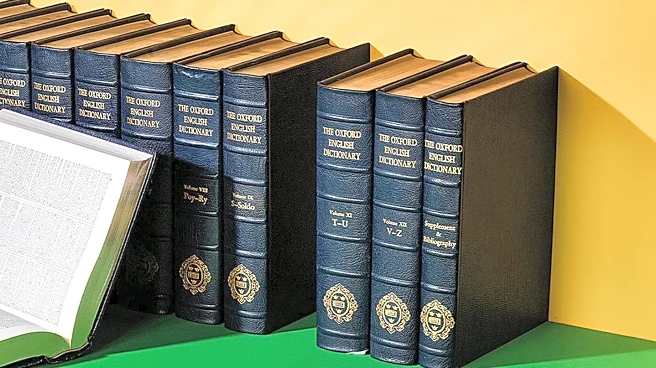What's Happening?
Dictionary.com has announced '6-7' as its word of the year, despite it not being a traditional word. The term gained viral popularity over the summer, largely driven by social media and its unclear meaning.
It originated from rapper Skrilla's 2024 song 'Doot Doot (6-7)' and was popularized through TikTok videos featuring basketball players like LaMelo Ball. The phrase became widely recognized after a viral video featuring a boy known as 'The 6-7 Kid' shouting it while another juggled his hands. Dictionary.com describes the selection as a linguistic time capsule reflecting social trends, although the exact meaning of '6-7' remains elusive.
Why It's Important?
The selection of '6-7' as the word of the year highlights the influence of social media on language and communication. It underscores how viral trends can shape cultural conversations, even when their meanings are ambiguous. This phenomenon reflects the evolving nature of language, where nonsensical expressions can foster connections among users. The widespread use of '6-7' demonstrates the power of digital platforms in creating and spreading new forms of communication, impacting how people, especially younger generations, interact and express themselves.
What's Next?
As '6-7' continues to gain traction, it may further influence social media interactions and cultural expressions. Parents, teachers, and influencers are attempting to understand and manage its usage among teens and tweens. Some educators have banned the phrase, while others suggest embracing it to diminish its appeal. The ongoing debate over its meaning and usage may lead to more creative interpretations and applications, potentially influencing future linguistic trends and social media content.
Beyond the Headlines
The rise of '6-7' raises questions about the role of language in digital communication and the impact of viral trends on societal norms. It challenges traditional notions of language, emphasizing the importance of context and shared understanding in communication. This development may prompt discussions on the ethical implications of language evolution driven by social media, including the potential for miscommunication and the need for digital literacy.










